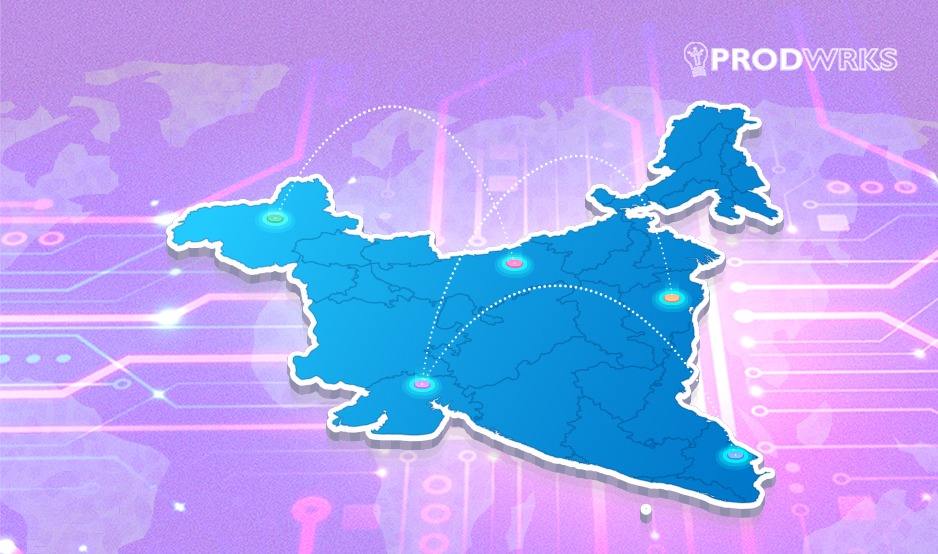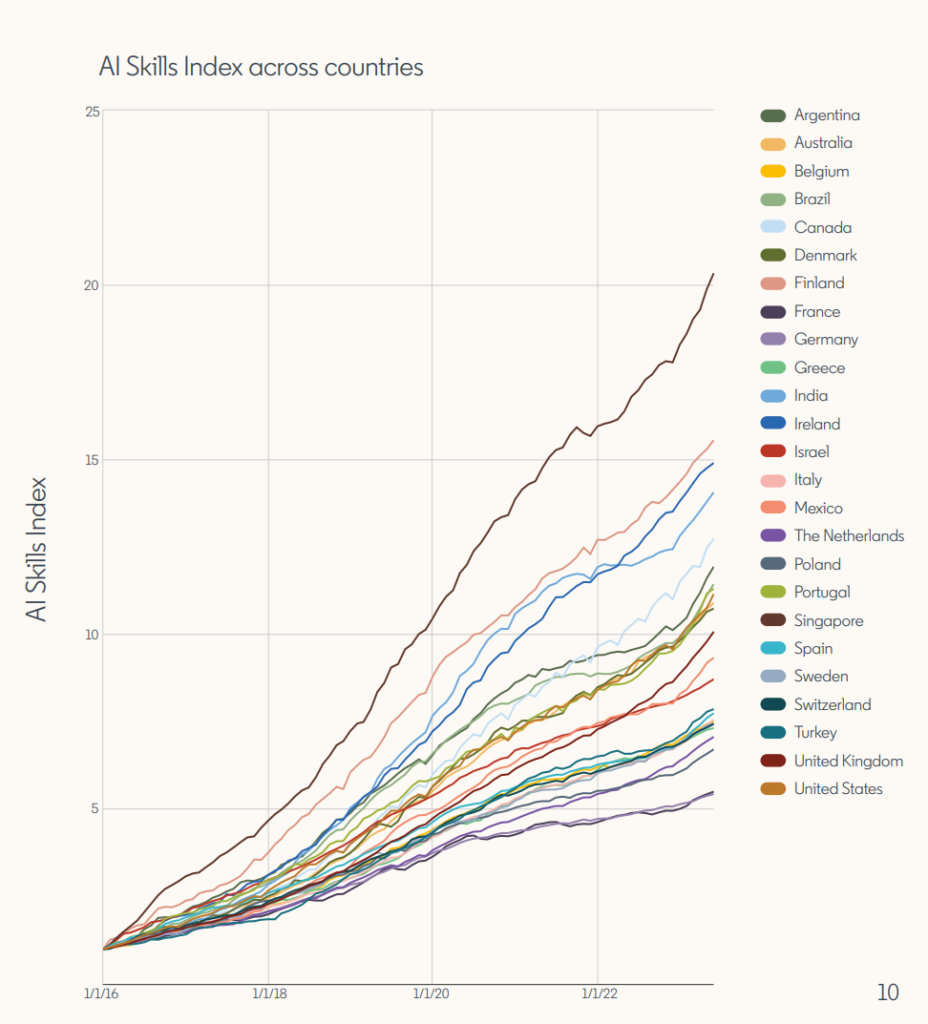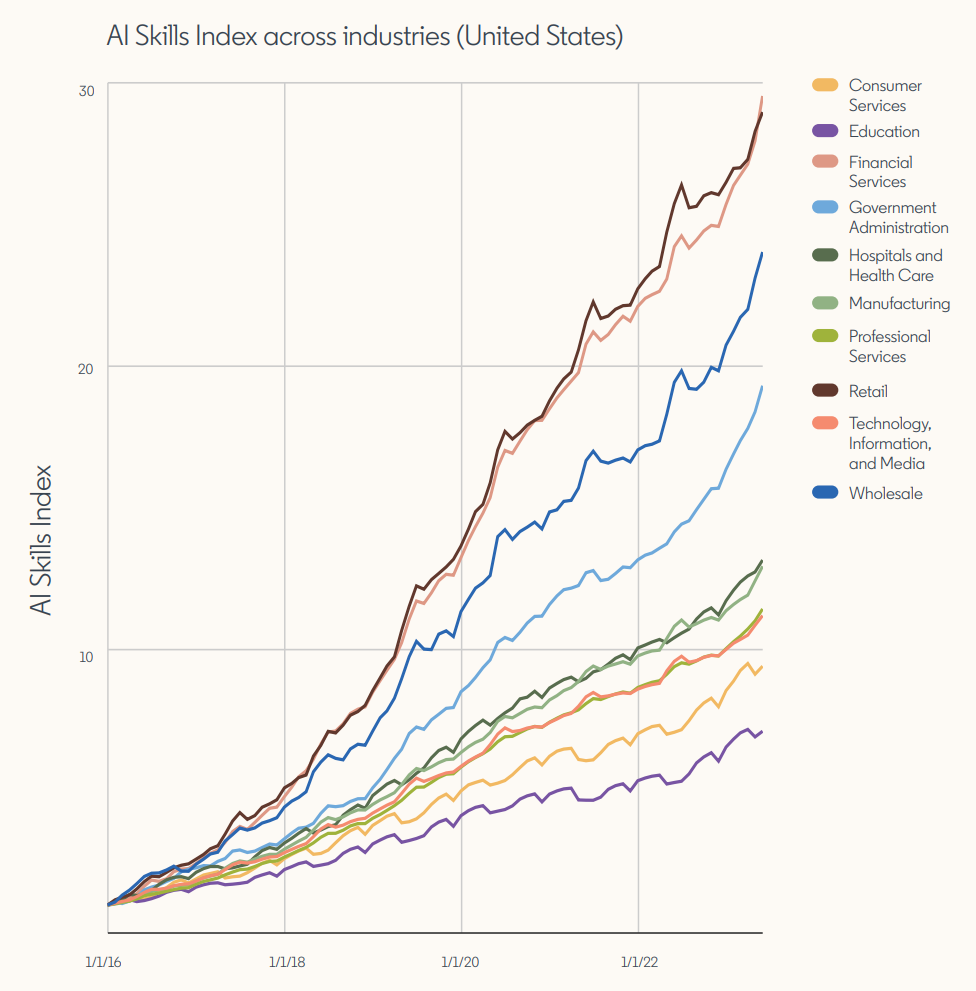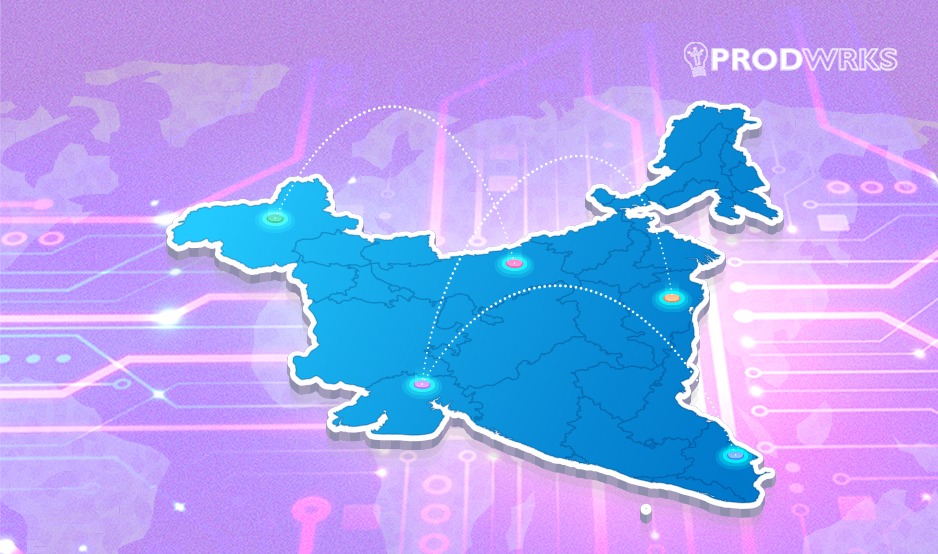
A global report by LinkedIn that examined the potential influence of AI technologies on the future of work found that India is among the top 5 countries experiencing the fastest rate of AI skills diffusion. The report says that the adoption of AI skills extends beyond tech to a range of industries, including retail, education, financial services, and many others.
Based on AI Skills Index data from 25 countries, by June 2023, the number of AI-skilled member profiles in LinkedIn was 8x larger than in January 2016. The index shows that Singapore, Finland, Ireland, India, and Canada are experiencing the fastest rate of AI skills diffusion.
The intersection of AI and the world of work
As per the report, There is an increased focus on AI at work. This includes job listings hirers are posting, the skills LinkedIn members are adding to their profiles, and in the everyday conversations people are having with each other on the platform.
While AI is not new, the launch of ChatGPT in November 2022 led to a meteoric rise of interest in and conversation around AI, and more specifically in GAI1 on LinkedIn.

Job postings referencing new AI technologies also are climbing rapidly: The share of global English-language job postings mentioning GPT or ChatGPT increased 21x since November 2022. Professionals and businesses are starting to embrace AI-assisted technologies, such as ChatGPT, in their daily work and adapt their processes.
Investments in learning how GAI can drive efficiencies and reduce time spent on routine tasks can prove to be a productivity win-win for employers and employees alike.
In 2022, the five fastest-growing AI-related skills added to LinkedIn member profiles, were all skills hinting at the emergence of GAI:
Question Answering: +332%
Classification: +43%
Recommender Systems: +40%
Computer Vision: +32%
Natural Language Processing (NLP): +19%
In an interview to Fortune magazine, Ryan Roslansky, Chief Executive Officer said, “Companies that focus on skills and shift away from more antiquated signals like degree, pedigree, or where someone worked previously, will be able to ensure they have the right people with the right skills, in the right roles, doing their best work. And it doesn’t stop there. Once you have those employees in the right roles with the right skills, it’s equally important to continue investing in their career progression and skills.”
Since many of these roles are brand new and no existing degree completely satisfies the role, filling them will require an increased emphasis on hiring for skills. Businesses will need to thoroughly understand the skills they have and the skills they need, so they can hire candidates with the right skills and direct upskilling efforts for current employees appropriately.
Investments in learning how GAI can drive efficiencies and reduce time spent on routine tasks can prove to be a productivity win-win for employers and employees alike.
In 2022, the five fastest-growing AI-related skills added to LinkedIn member profiles, were all skills hinting at the emergence of GAI:
Question Answering: +332%
Classification: +43%
Recommender Systems: +40%
Computer Vision: +32%
Natural Language Processing (NLP): +19%
Acceleration of AI skills across industries and geographies
An analysis of how AI skills are diffusing across 25 countries shows that the pace at which LinkedIn members added AI skills to their profiles nearly doubled since the launch of ChatGPT, rising from 7.7% (May–November 2022) to 13% (November 2022–June 2023).
Karin Kimbrough, the Chief Economist at LinkedIn says, “To realize the full promise of AI productivity gains depends on the diffusion of skills across geographies, industries, and talent. AI adoption and optimization of its use will of course take time, but at this early stage it appears that the pace of diffusion is getting underway. The brightest global economic outcome is one where innovation can scale borders and boost productivity growth for all.”
In 2016, only 3 out of every 1,000 members could be considered AI talent. By 2022, that number had increased to 17 in 1,000 (based on the median share of AI talent across 25 countries).
Based on AI Skills Index data from 25 countries, by June 2023, the number of AI-skilled members was 8x larger than in January 2016.

The index shows that Singapore has the highest diffusion rate over time (20x); in other words, the share of members who have added AI skills to their profiles is 20x as compared to January 2016. Finland (16x), Ireland (15x), India (14x), and Canada (13x) round out the top five countries with the highest rates of AI skills diffusion. LinkedIn’s AI Skills Index shows that the share of AI-skilled members in June 2023 is 9x as compared to 2016.
AI Industry Snapshot in the US
As might be expected, in the US, Technology, Information, and Media have the largest share of AI-skilled members (2.2%); while small, this is still well above other industries such as such as Education (1.2%), Professional Services (0.9%), Financial Services (0.9%), and Manufacturing (0.8%).

However, other industries are quickly catching up. When we look at the speed at which members are adding AI skills to their profiles, we see that professionals in Financial Services (30x), Retail (29x), and Wholesale (24x) are pivoting toward AI faster than in Technology, Information, and Media (11x).
Across 10 US industries, Financial Services stands out as the only industry in which the share of members with AI skills and the speed at which they are adding AI skills to their profiles is above that of the average industry. This is an example of how industries beyond Tech have the potential to be not only early adopters but drivers of AI innovation.
How the US is using AI
Trepidation is normal with any technological change, and AI is no exception. That said, we’re seeing mostly excitement from professionals about how these tools can help improve their productivity and reduce their workloads
51% of US executives are excited about AI advancements, but do not yet know how their organization will leverage AI tools and skills.
47% of US executives agree that “using GAI will increase productivity.
44% of US executives agree that they are planning to increase their use of AI at their organization in the next year.
40% of US executives also agree that using GAI will help unlock more growth and revenue opportunities in the next year.
4% of executives plan to reassess roles and reduce headcount as an impact of AI on their workforce
“Ultimately, when we talk about AI’s impact on work, what we are really talking about is how people will adopt these tools and continue to strengthen the people skills that complement them,” says Karin Kimbrough, Chief Economist, LinkedIn.




